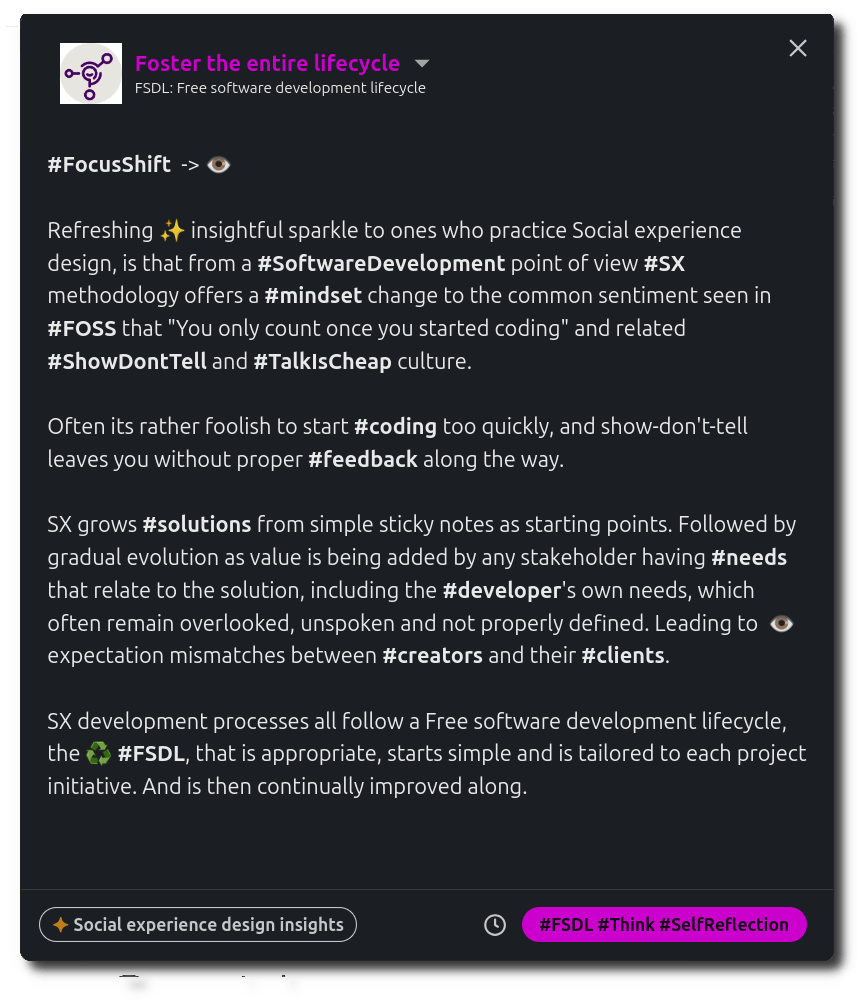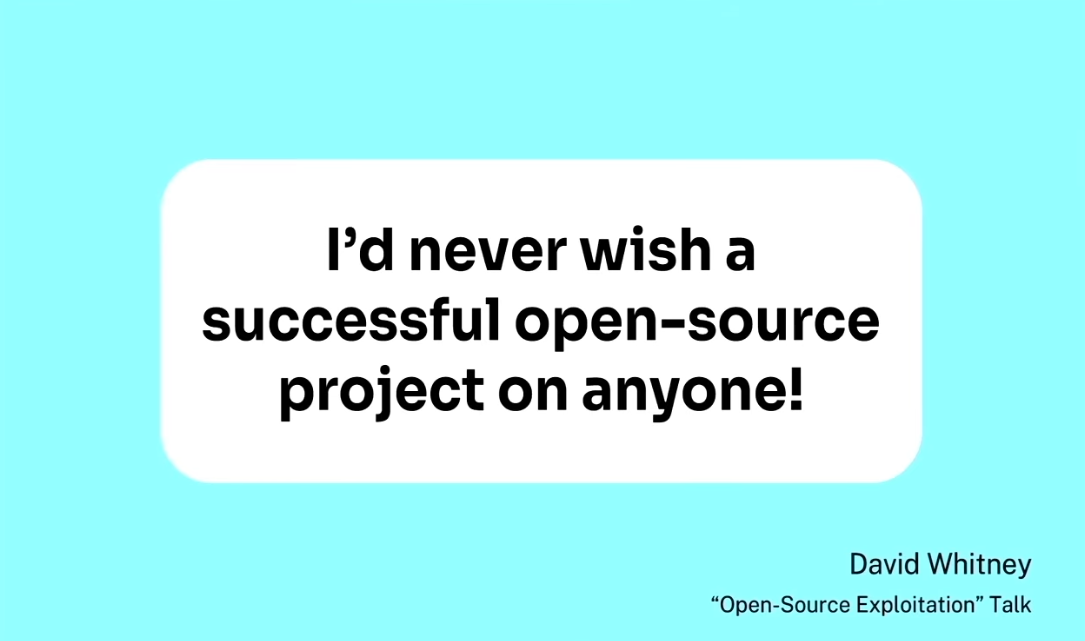Let's zoom in on a particular area of the commons: the #FreeSoftware movement and their #FOSS deliverables, where a strong #WorkingInPublic credo dominates. The noble focus is on offering open technologies, software and systems. But in their quest to uphold #SoftwareFreedom the overlooked aspect is #sustainability. The ability to not only sustain oneself, but also by extension the creative #commons one is part of. The commons is an entirely chaotic grassroots environment with very specific social dynamics that are not properly accounted for. Instead top-down "herding of cats" governance models that work in regular business environments, are attempted. These may work, but only in small organizational settings, and NOT at scale where they break down.
FOSS in this definition is NOT commons-based. For that we need #ChaordicCommons where FOSS is the deliverable and #SOSS initiatives the engines of delivery, #FSDL (Free software development lifecycle) supply chains.
https://coding.social/blog/reimagine-social/#sustainable-open-social-systems



